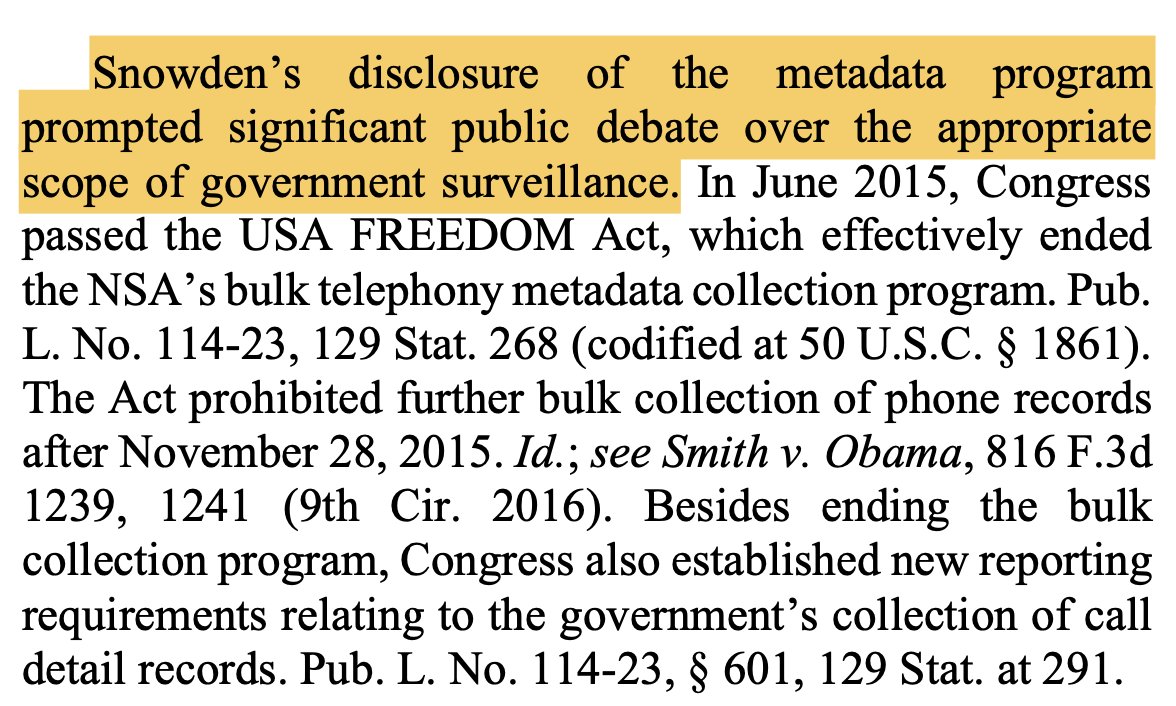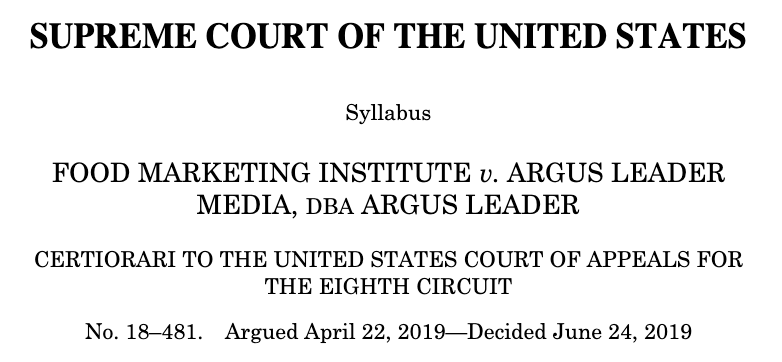
Litigation Director, @knightcolumbia. Formerly w/ @ACLU. Views here are my own. he/him. PGP: https://t.co/ZltwuSDLj3. @alexabdo@mastodon.social.
2 subscribers
How to get URL link on X (Twitter) App










 The case was about the Freedom of Information Act (FOIA), which entitles members of the public to ask federal agencies for their records. The agencies have to turn requested records over unless they fall within an “exemption” to FOIA. /2
The case was about the Freedom of Information Act (FOIA), which entitles members of the public to ask federal agencies for their records. The agencies have to turn requested records over unless they fall within an “exemption” to FOIA. /2
Chief Justice Roberts may have set himself up to extend his Riley decision to cellular location data. Justice Alito argued many times that Carpenter is indistinguishable from Smith and Miller. 1/
External Tweet loading...
If nothing shows, it may have been deleted
by @aclu view original on Twitter